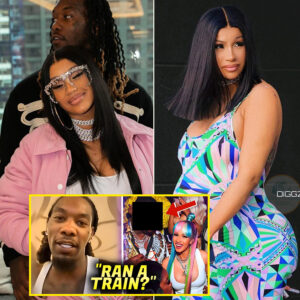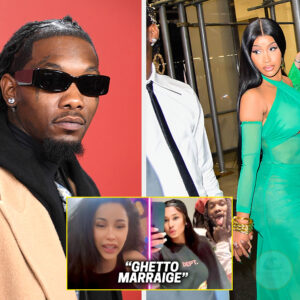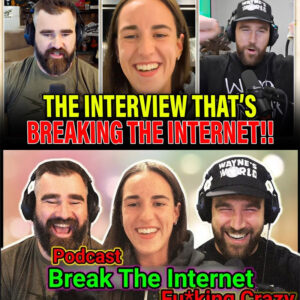Tick-tock — it’s only a matter of time before we’re all speaking TikTok talk.
Having been under the heavy influence of celebrities and viral tastemakers for the past few decades, it’s no wonder that rising Gen Z and millennial social media starlets have collectively adopted the signature cadences of VIPs such as Kim Kardashian, Britney Spears and Ariana Grande.
It’s a voice-mimicking trend known as “TikTalk” or “influencer accent” — and a linguistics specialist warned that it’s likely to be the future of the English accent.
“’TikTalk’ is a feature that’s been spreading as an innovative thing young people do — and seeing it online might encourage the continued spread of these features,” University of Warwick linguistics professor Christopher Strelluf recently explained to NationWorld of the buzzy phenomenon.
He identified two distinct features of the viral internet voice: “uptalk,” which he describes as “using a rising intonation in declarative sentences,” and “vocal fry,” which is adding a “low gravelly sound on vowels.”

Online, influencers are confessing to using the “TikTalk” accent in their trending videos.TikTok/@thesamanthajd

Social media users and experts alike attribute the popularity of “influencer accent” to Kim Kardashian.Getty Images
“Uptalk and vocal fry are already very much part of English,” explained Strelluf.
“Many people use both features when talking as a ‘floor-holding strategy,’” he continued. “In other words, when talking to someone, people often use a rising intonation at the end of a sentence or draw out a vowel to signal, ‘I’m not done talking yet — it’s still my turn.’
“We also use uptalk as a politeness strategy. Sometimes if we’re telling people to do something or telling people something unpleasant, we will use uptalk to soften it a bit.”
Chatty trendsetters across a plethora of niches have copped to co-opting the popular inflection in their posts.
“I agree that [the influencer accent] is unnatural, and it doesn’t make sense,” New York City vlogger Kara Knight said in an October clip dedicated to the unmistakable sound, which she credited to the Kardashians.
“But trying to force yourself [to speak] in a normal cadence while filming a video for the internet,” said the blond, stopping herself short of deeming the feat nearly impossible, “it’s like you’re almost conditioned to talk the way that you’ve been hearing things.”
Influencer coach Samantha Dixon also pleaded guilty to upping her pitch for social media snippets while admitting that she fears the accent will ultimately hinder her uniqueness online.
But California creator Julia Huynh argued that TikTalk is nothing more than a helpful tool for folks in front of the camera. “[We influencers] talk like that because it helps us stop, pause and figure out what we need to say before we say it,” explained the brunette.

“Uptalk and vocal fry are already very much part of English. Many people use both features when talking as a ‘floor-holding strategy,’” one linguistics professor said.TikTok/@jigglyjulia
And owing to the twang’s massive reach online, Strelluf predicts that the future of our inflection is female.
“TikTok is the evidence of the change that’s happening,” said the scholar. “But the platform is not the cause — women are the cause.
“Our language is always a product of innovations introduced by young women,” he added. “So any changes we hear by young women are probably the future of English.”
What do you think? Post a comment.
Insisting that the lady-led modification to the American accent isn’t a “bad thing,” Strelluf noted that embracing the trendy tone is in society’s best interest.
“In the future, uptalk used like this will probably be the norm,” he said. “Then TikTok can introduce these changes to more people and encourage young people to adopt those features, that are already part of their language, with greater frequency.”
Relative Articles
None found





